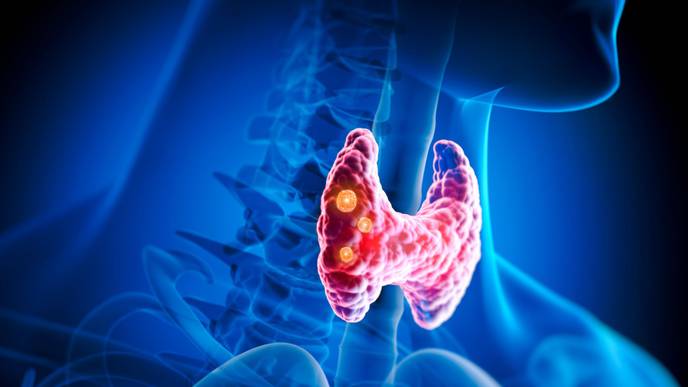High Selenium Concentrations Linked with Low Thyroid Function

07/06/2023
The study, published in Clinical Endocrinology, indicates an inverse correlation between selenium and FT4. The study also established sex-specific causal associations between Se and FT4 in women.
Selenium is an essential trace element that maintains multiple normal physiological functions in humans. It is obtained from various food sources, including cereals, grains, organ meats, seafood, dairy products, and vegetables. There needs to be clarity on the impact of Se on human thyroid function, with inconsistent results from recent epidemiological studies. Moreover, the observed associations are prone to bias owing to potential confounding and reverse causation.
To fill this knowledge gap, Hui-Jun Huang, Wenzhou Medical University, Wenzhou, Zhejiang, China, and colleagues aimed to examine the association between Se concentrations and human thyroid function using a two-sample MR analysis.
For this purpose, the researchers identified genetic instruments for Se concentrations, including toenail and blood (TAB) and blood Se concentrations from a genome-wide association study (GWAS) of blood Se (n = 5477) and toenail Se levels (n = 4162). GWAS summary statistics on thyroid phenotypes were obtained from the GWAS summary statistics on thyroid phenotypes, including free thyroxin (n = 49,269), thyroid-stimulating hormone (TSH) (n = 54,288), hyper (n = 51,823), and hypothyroidism (n = 53,423).
The Mendelian randomization analysis was conducted using the inverse-variance weighted (IVW) method, supplemented with the weighted median and the model-based approach.
The study led to the following findings:
- Genetically determined TAB Se was negatively associated with FT4 (β = −.067) using the IVW analyses and the additional analyses using the weighted median and weighted-mode methods.
- No evidence of heterogeneity, pleiotropy or outlier single-nucleotide polymorphisms were detected.
- A suggestive casual association between increased genetically determined TAB Se concentrations and decreased hypothyroidism risk was found by the IVW method (odds ratio [OR] = 0.847).
- The causal effect of TAB Se on FT4 was observed in women (β = −.076).
- The influence of genetically determined higher Se concentrations on TSH levels and hyperthyroidism revealed insignificance in the primary and sensitivity analyses.
"The study found that genetically predicted TAB and blood Se concentrations were inversely associated with FT4. A suggestive casual association was observed between TAB selenium concentrations and hypothyroidism," the researchers wrote. "Furthermore, we found significant effects of TAB Se on FT4 in women."
"We, however, find little evidence between Se concentrations and other thyroid-related phenotypes," they concluded. "Further research is needed to explore the underlying mechanisms to uncover the role of Se supplementation in sex-specific thyroid function."
Reference:
Huang HJ, Wang SS, Jin MM, Cheng BW, Liu Y, Liu XC, Yu QY, Yang XJ. Genetically predicted selenium concentrations and thyroid function: A two-sample Mendelian randomization study. Clin Endocrinol (Oxf). 2023 Jun;98(6):813-822. doi: 10.1111/cen.14867. Epub 2022 Dec 25. PMID: 36536522.

Facebook Comments